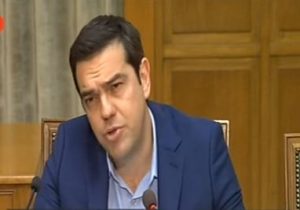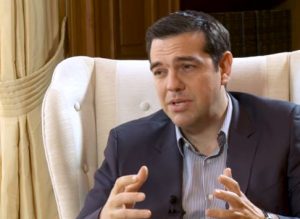MOSCOW, Russian Federation. Alexis Tsipras will travel to Russia again on Friday to meet Vladimir Putin as questions swirl over whether Moscow could extend credit lines to bail out the Greek prime minister’s embattled economy.
Tsipras heads to Russia as fears grow that a Greek exit from both the eurozone and the European Union could be inevitable. The governor of Greece’s central bank, Yannis Stournaras, warned on Wednesday that his country was on the brink of an “uncontrollable crisis” and that failure to reach a deal would “lead initially to a Greek default and ultimately to the country’s exit from the euro area and – most likely – from the European Union”.
Tsipras will meet Putin on the sidelines of a major economic forum in St Petersburg. The Greek prime minister has been an outspoken critic of EU sanctions against Russia and is seen as one of the Kremlin’s few friends inside the European bloc. Nevertheless, sources in Brussels told news agencies on Wednesday that all 28 EU nations had agreed to roll over sanctions against Russia, which are due for renewal at a meeting on Monday.
Tsipras has criticised the sanctions on numerous occasions, and during a visit to Moscow in April hoped to secure an exemption for Greek produce from Russia’s counter-sanctions, which ban the import of fruit, vegetables and cheese from EU countries, and which have hit Greek farmers hard. On that occasion, Tsipras left Moscow with little except warm words of friendship, and analysts say it is unlikely that Putin will have much to offer immediately during this week’s visit.
“A financial deal package to Greece is definitely possible, but it’s unlikely to come as a straight bailout loan, and more likely to be packaged as part of an advance payment deal over gas transfer or something similar,” said Chris Weafer, a Moscow-based financial analyst.
The two leaders will discuss Greek participation in a major pipeline project that would bring Russian gas to Europe through Turkey and Greece, bypassing Ukraine – a long-term Russian strategic aim.
Another possible outcome is that a newly founded development bank for the BRICS countries – Brazil, Russia, India, China and South Africa – could ask Greece to join. Athens would pay a token amount to join the new bank and could then receive loans and funding for infrastructure projects.
Tsipras has said he will “seriously consider” Russia’s invitation to join the bank, which was clearly made with political rather than economic motives in mind.
The Greek energy minister, Panagiotis Lafazanis, told agencies last week: “We secured decisive Russian support for Greece’s request for participation in the new development bank of Brics countries.”
But the other Brics nations, which are due to meet at a summit in the Russian city of Ufa next month, may not agree to take Greece on, and analysts say Russia is unlikely to risk such a confrontational move in the immediate future.
“I wouldn’t expect Russia or the Brics bank to offer Greece loans right now; this would be seen as an aggressive move and would be likely to harden attitudes in Brussels and Berlin even further,” said Weafer.
Weafer said similar discussions had occurred over possible Russian bailouts of Iceland and Cyprus during financial crises but had come to little. “If help does come, it is likely to be after Greece has settled its issues, one way or the other, with the EU,” he said.
Russia’s economy, and its rouble currency, have been hard hit by a combination of falling oil prices and western sanctions over Ukraine, and while things have improved since December, Moscow was still not in a position to be throwing money around, said Weafer.
“The bottom line is that while access to international debt markets is still restricted, there just isn’t billions of dollars around to use for bailing out foreign countries while it may still be required to pay all the bills at home.”
Credit: The Guardian (UK)


